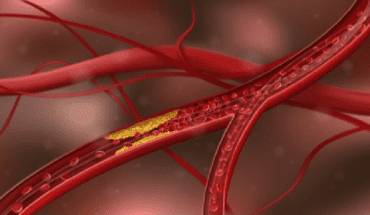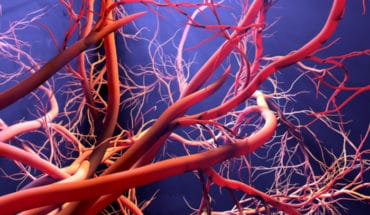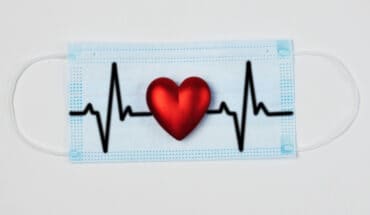Early vascular damage and atherosclerosis in adolescents may be caused by low-grade inflammation, a paper published in the Journal of Applied Physiology concludes. The study was conducted in collaboration between the University of British Columbia in Canada, the University of Bristol in the UK, the University of Exeter in the UK, the University of Illinois in the US, and the University of Eastern Finland.
In adults, it is known that low-grade inflammation is a major cause of circulatory, musculoskeletal, gastrointestinal, and nervous system diseases and it can also get worse due to ageing and poor lifestyle habits. However, in healthy growing children and adolescents, it remains unclear whether low-grade inflammation contributes to premature vascular damage.
“Contrary to some earlier findings, we now know that premature inflammation-induced vascular damage in adolescents, such as higher arterial stiffness, may cause elevated blood pressure, hypertension, insulin resistance, obesity, and elevated heart rate,” says Andrew Agbaje, a physician and clinical epidemiologist at the University of Eastern Finland.
The current study was conducted among 3862 adolescents who were 17 years old and followed up for 7 years until 24 years of age. The results revealed that about 1 in 3 males and 1 in 2 females were at risk of higher and worsening inflammation by age 24 years. The researchers found that increased inflammation in males may cause higher carotid wall thickness, which is a sign of preclinical atherosclerosis. On the other hand, increased inflammation in females may cause higher arterial stiffness. According to the researchers, these sex-specific negative effects of inflammation on different aspects of the blood vessels is a novel finding, and it may help understand the pathogenesis of cardiovascular disease in early life as well as the optimal approach for treatment. To their surprise, the researchers observed that being overweight or obese did not influence the negative effect of inflammation on premature vascular damage.
“The question that comes to mind is what could cause inflammation in healthy children and adolescents? Unfortunately, the type of diet a child is exposed to may significantly increase inflammation. For example, fruits, vegetables, and fibre-rich foods have significant anti-inflammatory properties and should be encouraged in the family. However, food rich in saturated and trans fats, salty and deep-fried food, red and processed meat, as well as sugary drinks, pastries, and candies may be associated with premature vascular damage since they can significantly raise inflammation,” Agbaje says.
“These novel findings should strengthen our approach to preventing premature vascular damage in adolescents. Public health experts, pediatricians, and health policymakers should encourage families to take up healthier diet choices. One approach is to significantly lower the prices of fruits and vegetables through government subsidy and tax returns,” Agbaje says.
Dr Agbaje’s research group (urFIT-child) is supported by research grants from Jenny and Antti Wihuri Foundation, the Finnish Cultural Foundation Central Fund, the Finnish Cultural Foundation North Savo Regional Fund, the Orion Research Foundation sr, the Aarne Koskelo Foundation, the Antti and Tyyne Soininen Foundation, the Paulo Foundation, the Yrjö Jahnsson Foundation, the Paavo Nurmi Foundation, the Finnish Foundation for Cardiovascular Research and the Foundation for Pediatric Research.
- New lipid-based pathway discovered as key to memory formation - 25th June 2025
- Crucial link could explain how Alzheimer’s takes hold - 25th June 2025
- Understanding Your Mind Can Improve Daily Life - 25th June 2025







